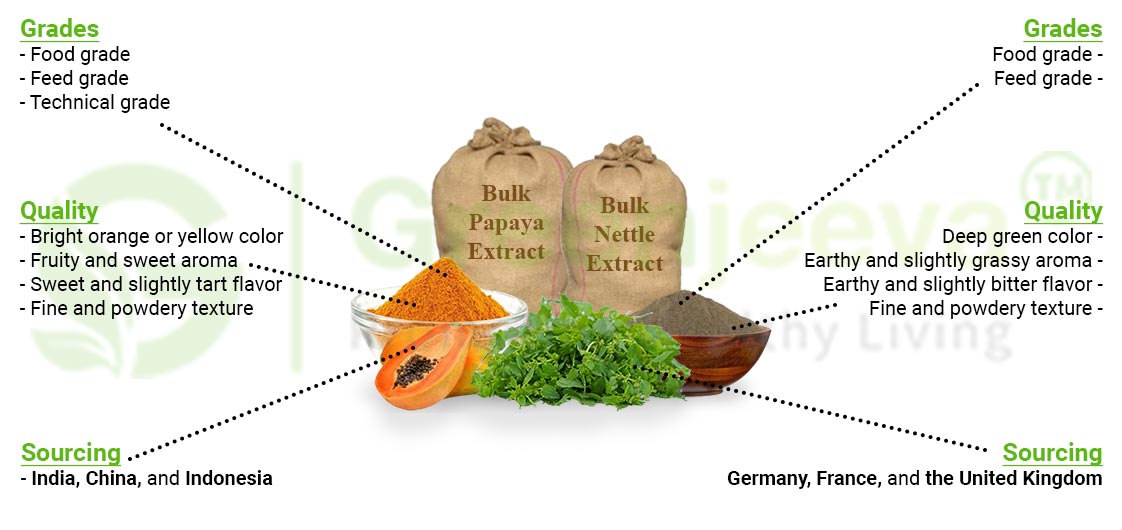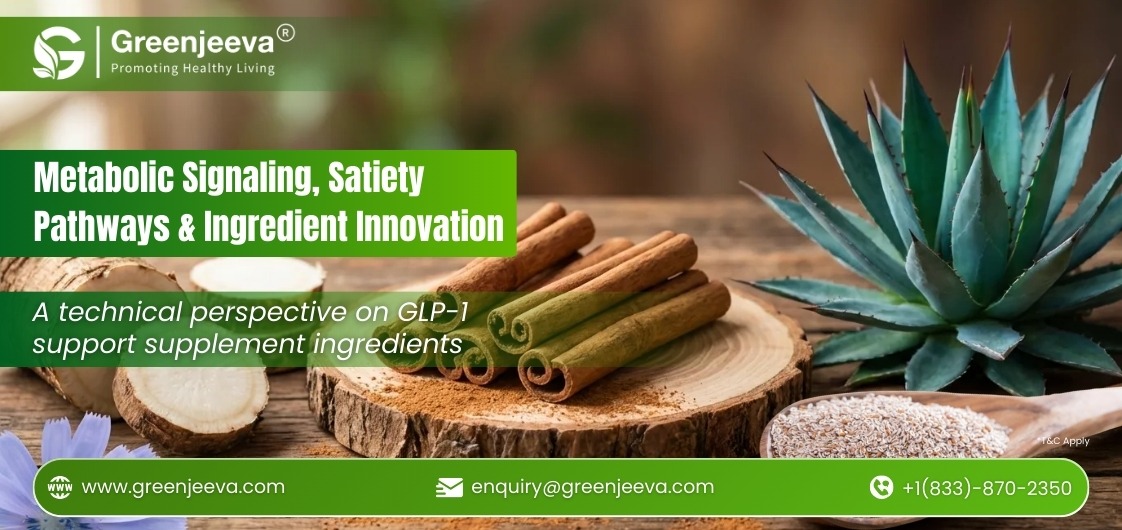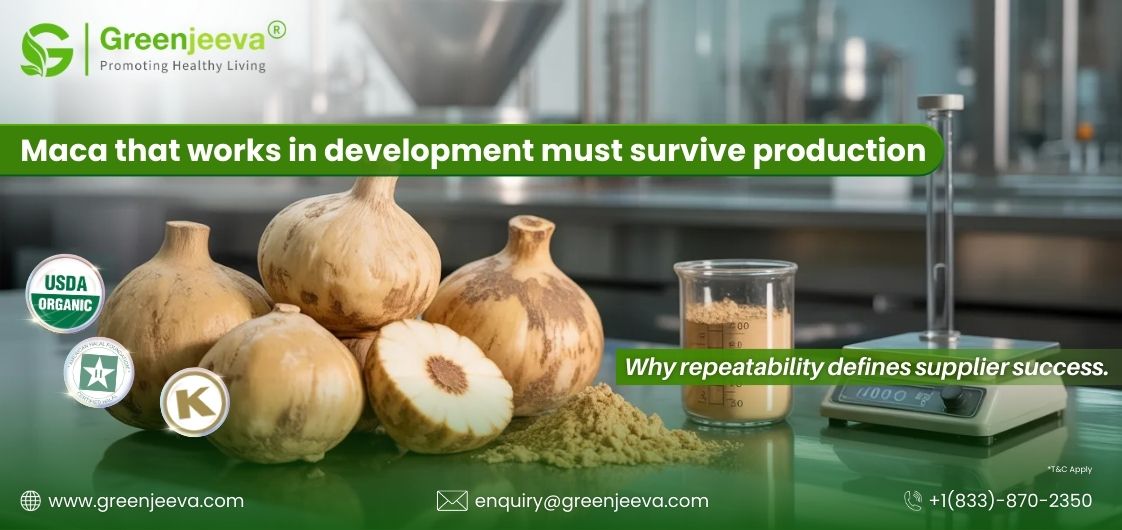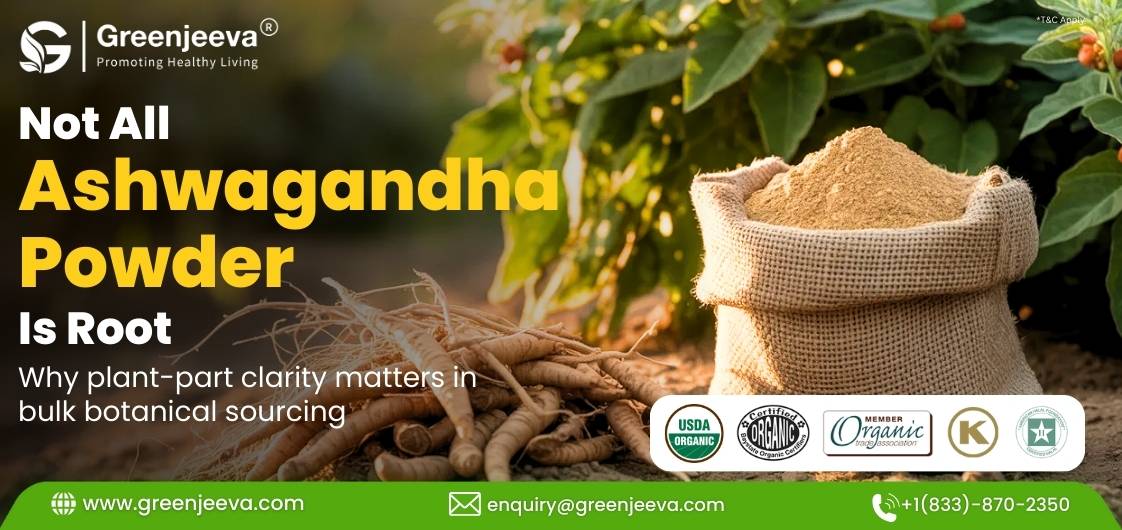The Growing Market of Infant Formula with Nutrient Rich Foods

The baby food market has experienced a significant surge in recent years as parents increasingly prioritize nutrition and organic options for their infants. This growing trend has led to a surge in demand for nutrient rich foods, with ingredients like papaya and nettle gaining recognition for their health benefits. In this blog, we'll explore the expanding baby food market and the crucial role of ingredients like papaya and nettle in creating organic and nutrient-rich formulations.
The Boom in the Baby Food Market
The global baby food market has been witnessing substantial growth, driven by factors such as the rising awareness of the importance of early nutrition, increasing disposable income, and a shift towards organic and natural products. Parents are now more discerning about the quality of ingredients in baby food, sparking a demand for organic and nutrient-dense options.
The Role of Papaya
Papaya, a tropical fruit rich in vitamins, minerals, and antioxidants, has become a star ingredient in many baby food formulations. Its natural sweetness and creamy texture make it an appealing choice for infants, while its nutritional profile contributes to their overall well-being. Papaya is an excellent source of vitamin C, folate, and fiber.
Read more about Papaya here. Interesting Lesser-Known Facts About Papaya Fruit (greenjeeva.com)
Nettle's Nutrient Power
Nettle, a nutrient-dense leafy green, is gaining traction in baby food formulations for its impressive health benefits. Packed with vitamins A, C, and K and minerals like iron and calcium, nettle boosts health and growth. Its mild, earthy flavor makes it a versatile addition to various baby food products.
Know Nettle in detail. Lesser-Known Facts About Nettle Plant (greenjeeva.com)

Sourcing Ingredients for Organic and Nutrient Rich Foods
Creating organic and nutrient rich baby food involves meticulous ingredient sourcing. Procurement teams are crucial in ensuring the ingredients' quality, sustainability, and safety.
Here are key points to be noted:
Certified Organic Sources:Ensure suppliers adhere to certified organic standards. Look for certifications from recognized bodies, confirming that the ingredients are free from pesticides, synthetic fertilizers, and genetically modified organisms (GMOs).
Traceability:Establish a transparent supply chain by choosing suppliers who can provide detailed information about the origin of the ingredients. Traceability is vital for ensuring the quality and safety of the baby food.
Quality Standards:Set stringent quality standards for ingredients, considering freshness, flavor, and nutritional content. Regular testing for contaminants and adherence to food safety regulations are paramount.
Sustainability Practices:Emphasize sustainability in ingredient sourcing. Choose suppliers who employ eco-friendly farming practices, minimizing environmental impact. Sustainable sourcing aligns with the values of conscious consumers.
Reliability of Suppliers:Partner with reliable suppliers with a proven track record of delivering high-quality ingredients. Consistent and trustworthy suppliers contribute to the reliability and reputation of the baby food brand.
Conclusion
The growing baby food market presents exciting opportunities for companies to cater to the evolving needs of parents seeking organic and nutrient rich foods. Ingredients like papaya and nettle contribute not only to the deliciousness of baby food but also to health. By prioritizing meticulous ingredient sourcing, procurement teams play a pivotal role in ensuring the success and sustainability of the baby food industry, meeting the expectations of health-conscious parents worldwide.
For customers looking for organic and conventional raw ingredients with same-day shipping in and around Canada, visit Green Jeeva Canada.
**The Food and Drug Administration has not evaluated these statements. This product is not intended to diagnose, treat, cure, or prevent any disease.**


.jpg)



